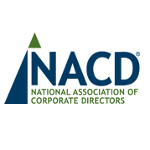Platinum Equity and Stone Canyon Industries, LLC announced it has signed a definitive agreement for Platinum Equity to sell BWAY Corp. to Stone Canyon Industries LLC for $2.4 billion.
BWAY is a North American manufacturer of rigid metal and plastic containers used to package industrial, bulk food and retail goods. The sale is subject to regulatory approval and customary closing conditions, and is expected to close in August 2016.
Latham & Watkins LLP represented Platinum Equity in the transaction with a corporate deal led by Washington, D.C. partner David Brown and associates Daniel Kecman, Mariclaire Petty and Alexander Sevald. Advice was also provided on tax matters by New York partner Lisa Watts and associate Matthew Dewitz; on intellectual property matters by Washington, D.C. counsel Kieran Dickinson and Los Angeles associate Aryeh Richmond; on employee benefits matters by Washington, D.C. partner David Della Rocca and associates Matthew Conway and Nikhil Kumar; on environmental matters by Washington, D.C. partner James Barrett; on real estate matters by Chicago partner David Shapiro and associate Patrick Maloney; on government contracts matters by Washington, D.C. counsel Kyle Jefcoat; on export controls and sanctions matters by Washington, D.C. partner William McGlone and on debt financing matters by Washington, D.C. partners Scott Forchheimer, Patrick Shannon and Shagufa Hossain.
Platinum Equity acquired BWAY in 2012. In January 2013 BWAY acquired Ropak, a complementary producer of rigid plastic containers.
“BWAY’s success is a testament to strong collaboration with Ken Roessler and his management team and the value of truly integrating M&A with operations at every level of the investment,” said Platinum Equity Partner Louis Samson. “The company is well positioned for continued success going forward.”
Samson said that BWAY’s EBITDA grew approximately 45% from 2012 to 2016 thanks to a combination of operational improvements and growth through acquisition.
“We have had a great partnership with Platinum Equity and we are proud of everything our teams have accomplished together,” said BWAY CEO Ken Roessler. “Today we have a fundamentally sound business with great momentum, and we are poised for continued growth and long-term profitability as we transition to Stone Canyon’s ownership.”
“BWAY’s success is a testament to strong collaboration with Ken Roessler and his management team and the value of truly integrating M&A with operations at every level of the investment. The company is well positioned for continued success going forward,” said Platinum Equity Partner Louis Samson.
Jim Fordyce, co-CEO of Stone Canyon Industries, said his firm is excited about BWAY’s potential and looks forward to working with Roessler and the management team.
“BWAY is a world class company with a great leadership team, dedicated employees and a very bright future,” said Fordyce. “We look forward to working with Ken to help BWAY continue delivering on its strategic and operational plan as the company takes the next step in its evolution.”
Goldman, Sachs & Co. is serving as financial advisor to Platinum Equity and Latham and Watkins is serving as Platinum Equity’s legal counsel. BMO Capital Markets is serving as financial advisor to Stone Canyon Industries and Gibson, Dunn & Crutcher is serving as its legal counsel.
 When negotiating and drafting a contract on behalf of a business, one of the most important considerations is whether it will create personal liability for the individual signing on behalf of the business, as illustrated by a recent decision from Florida’s Third District Court of Appeal,
When negotiating and drafting a contract on behalf of a business, one of the most important considerations is whether it will create personal liability for the individual signing on behalf of the business, as illustrated by a recent decision from Florida’s Third District Court of Appeal,  Wal-Mart Stores Inc. would have to spend an additional $4.95 billion if it were to raise the minimum wage for its hourly employees in the United States to $15 per hour from the current $10 per hour, according to an estimate by the UC Berkeley Center for Labor Research,
Wal-Mart Stores Inc. would have to spend an additional $4.95 billion if it were to raise the minimum wage for its hourly employees in the United States to $15 per hour from the current $10 per hour, according to an estimate by the UC Berkeley Center for Labor Research,  A federal judge has shot down a motion by Oracle to overturn a jury verdict that found Google’s use of Java application program interfaces (APIs) in Android was “fair use.” The verdict also rejected Oracle’s claim that the mobile system infringed its copyrights.
A federal judge has shot down a motion by Oracle to overturn a jury verdict that found Google’s use of Java application program interfaces (APIs) in Android was “fair use.” The verdict also rejected Oracle’s claim that the mobile system infringed its copyrights. Anyone who has purchased a product online or downloaded software for a computer, tablet or mobile device has likely encountered “browsewrap” and “clickwrap” agreements, write
Anyone who has purchased a product online or downloaded software for a computer, tablet or mobile device has likely encountered “browsewrap” and “clickwrap” agreements, write  The National Association of Corporate Directors’ 2016 edition of Governance Challenges combines guidance from five strategic content partners of the NACD with broad M&A expertise. The report addresses the importance of early board engagement in strategy, the need for proactive dialogue with all key stakeholders, and the imperative to balance short-term and long-term goals throughout the M&A process.
The National Association of Corporate Directors’ 2016 edition of Governance Challenges combines guidance from five strategic content partners of the NACD with broad M&A expertise. The report addresses the importance of early board engagement in strategy, the need for proactive dialogue with all key stakeholders, and the imperative to balance short-term and long-term goals throughout the M&A process. Contract drafting is one of those subjects that just doesn’t get the attention it deserves, write
Contract drafting is one of those subjects that just doesn’t get the attention it deserves, write  Tucson lawyer Jeffrey Greenberg pleaded guilty in a $33-million real estate scheme in California that a federal prosecutor described as “extraordinary fraud,”
Tucson lawyer Jeffrey Greenberg pleaded guilty in a $33-million real estate scheme in California that a federal prosecutor described as “extraordinary fraud,” 
 The Associated Press is
The Associated Press is